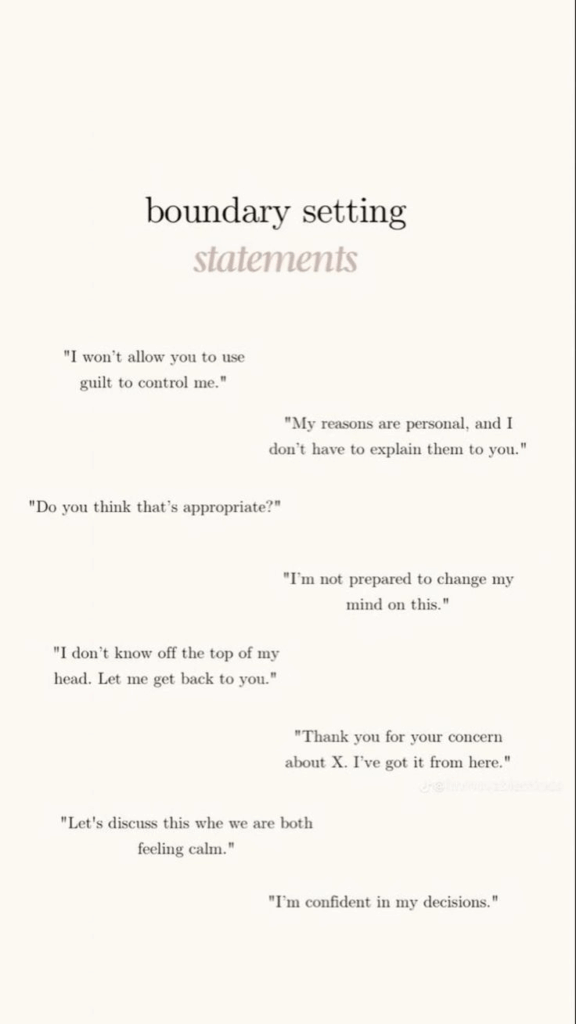How to Set Healthy Boundaries With Family Without Feeling Like a ‘Bad Daughter’

Picture Source: https://i.pinimg.com/736x/d9/fc/bb/d9fcbb9a2edb15a2fcb587d7d59d6556.jpg
Let’s be honest: setting boundaries in Desi families is like trying to explain Wi-Fi to your grandma in 2004—confusing, guilt-ridden, and often misunderstood.
You say “I need space” and suddenly you’re labeled the selfish, Westernized one.
You skip one family gathering and it’s “Tu badal gayi hai.”
But here’s the truth no one tells us growing up:
🌱 Boundaries are not betrayal—they’re emotional self-care.
If you’re a South Asian woman trying to survive emotionally in a culture that glorifies sacrifice and obedience, this one’s for you.
Why Boundaries Feel Like Rebellion in Desi Households
In many Desi cultures, your worth is often tied to how much you can endure. Whether it’s doing what elders say without questioning or showing up to every event even when you’re burnt out, it’s all about “log kya kahenge” and less about “how are YOU really doing?”
So when you begin to assert your needs, it feels like a threat to the entire system.
You’re not just setting boundaries—you’re breaking generational patterns.
Signs You Need to Set a Boundary (But Might Be Ignoring)
- You feel anxious before family calls or meetups
- You’re doing things out of obligation, not choice
- You say yes, then secretly resent it
- You feel like your emotional tank is always on E
If any of these hit too close to home, it’s time.
Guilt vs. Growth: Why You’re Not a “Bad Daughter”
Let’s get one thing straight:
You can love your family and still need limits.
You can honor your roots without abandoning your mental health.
That feeling of guilt?
That’s your old conditioning clashing with your new growth.
How to Actually Set Boundaries (Without the Drama)
Here’s a simplified starter kit:
🧠 1. Get Clear First
Before you talk to anyone, get clear on your “why.”
What do you need? Space? Time? Privacy?
💬 2. Use the “Love + Limit” Formula
“I love being involved, but I need a break this week to reset.”
🎯 3. Expect Pushback (And Don’t Panic)
They might guilt-trip you. That’s not a failure—it’s part of the process. Stay calm, stay grounded.
🔁 4. Repeat As Needed
Boundaries aren’t a one-time thing. They’re a practice. With time, it gets easier.
Real Talk: What a Guilt-Trip Sounds Like (And How to Respond)
| Guilt-Trip | Empowered Response |
|---|---|
| “We did everything for you—this is how you repay us?” | “I appreciate everything, and I still need rest to show up as my best self.” |
| “You never care about this family anymore.” | “I care deeply. This is just me honoring my limits so I don’t burn out.” |
| “Why are you being so distant?” | “Taking space helps me recharge so I can be more present later.” |
We made a full toolkit with more examples 👇
🛑 Feeling Called Out? That’s Where the Toolkit Comes In
💡 Get our free printable
🎁 Boundary-Setting Toolkit: Designed for Desi Family Dynamics
This isn’t your basic therapist worksheet. It’s:
- A table-style game with guilt-trip scenarios & powerful comebacks
- A writing section to craft your own real-life boundaries
- Something you can print, scribble on, or share with a friend
📥 Click here to download the toolkit
✨ Finally, a boundary resource that actually speaks Desi.
No Responses